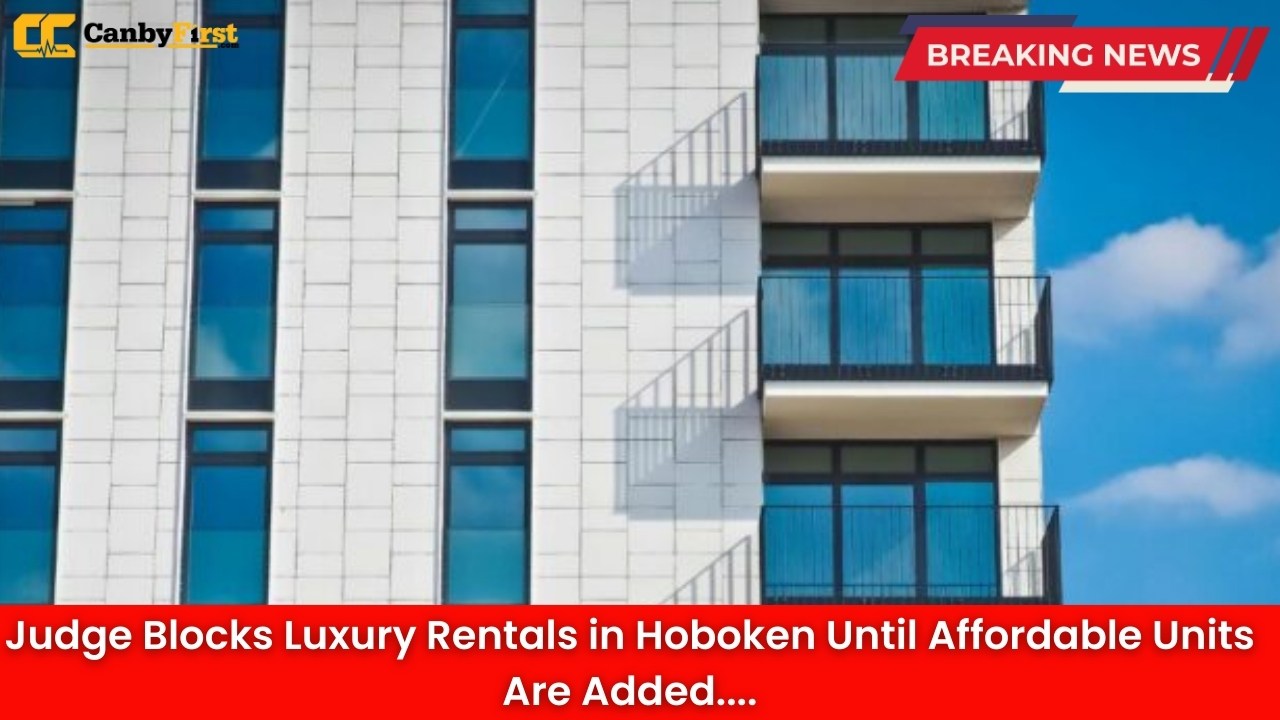Hoboken, US: A Hudson County Superior Court judge has ruled that several newly built luxury residential towers in Hoboken will not be allowed to rent their high-priced units until developers comply with the city’s affordable housing obligations. The decision marks a significant win for tenant advocates and city officials who have long argued that Hoboken’s rapid luxury development has left behind working- and middle-class residents.
Court Ruling Targets Compliance
The ruling came after the city filed legal action against developers accused of sidestepping mandatory inclusionary housing requirements. These laws require that a percentage of new units in large projects be made available at below-market rents to ensure broader housing accessibility. According to the judge, developers failed to hold up “critical obligations to the community” and were ordered to pause luxury rentals immediately.
City attorneys argued that rental approvals for market-rate apartments should not proceed until the affordable units are constructed or made available. The court agreed, stating that allowing luxury leasing while delaying affordable options would undermine Hoboken’s housing laws and exacerbate inequality.
Also Read
Affordable Housing Push
Hoboken has long faced mounting pressure over housing affordability as property values and rents surged over the past decade. Luxury high-rises boasting riverfront views, rooftop amenities, and concierge services have dominated the city’s skyline, while lower-income and moderate-income families struggle to remain in their neighborhoods.
Mayor Ravi Bhalla applauded the judge’s decision, calling it a “landmark moment” in the city’s efforts to keep Hoboken livable for residents across income levels. “Developers have a responsibility to our community,” Bhalla said. “This is a clear message that profit cannot come before fairness.”
Developers Push Back
Developers involved in the affected projects expressed frustration, warning that the ruling could delay openings, leasing schedules, and financial returns. Some claimed they had plans to include affordable units but were negotiating details with the city. Others suggested the standards were too burdensome given rising construction costs.
Industry groups argue that overly strict inclusionary zoning requirements could discourage investment in Hoboken and slow down its booming real estate development. They maintain that the city needs a balanced approach that attracts builders while providing opportunities for less affluent residents.
Residents React
The decision sparked mixed reactions among Hoboken residents. Tenant advocates cheered the ruling as a rare instance where communities had a clear victory over developers. “For too long, Hoboken has become a city only the wealthy can afford. This ensures a fairer playing field,” said one local housing activist.
Meanwhile, some residents worried that extended delays could stall neighborhood improvements, increase rents in surrounding areas, or tie up construction sites indefinitely. However, most agreed that the city needs to hold firm against developers failing to deliver affordable housing promises.
What Happens Next
The court order means developers must present concrete plans for affordable unit integration before high-priced apartments can be legally rented. While some projects may quickly adjust to comply, others could face lengthy legal or planning battles.
City officials indicated they would work closely with the courts to monitor compliance and ensure housing fairness remains a priority. The ruling is also expected to influence future projects, with stricter enforcement of inclusionary housing commitments likely to shape Hoboken’s development landscape in the years ahead.
A Test Case for Other Cities
Housing experts believe the Hoboken case could set an important precedent for cities across the U.S. struggling with similar challenges. As luxury development continues to reshape urban areas, courts may play an increasingly active role in ensuring housing equity.
For now, Hoboken’s luxury towers will remain partially dark until builders meet their obligations to the community—making clear that the race for profit cannot outpace the need for fair housing.












